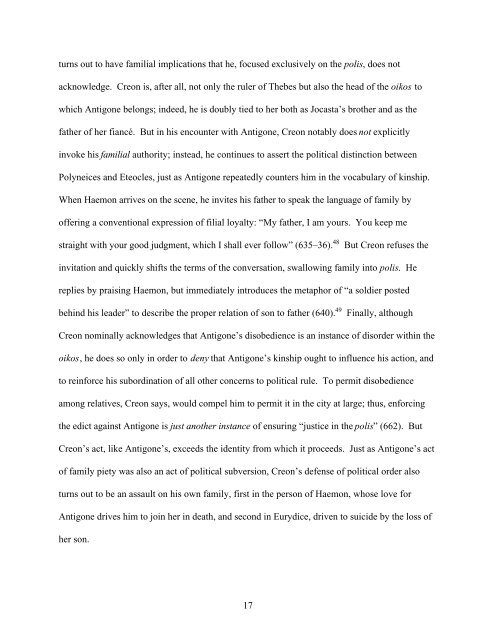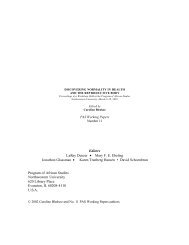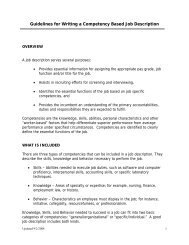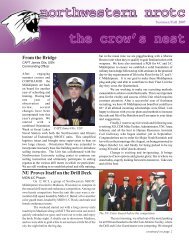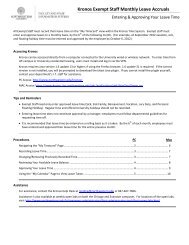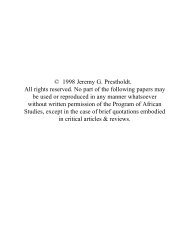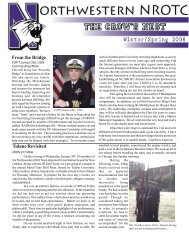TRAGIC RECOGNITION: ACTION AND IDENTITY IN ANTIGONE ...
TRAGIC RECOGNITION: ACTION AND IDENTITY IN ANTIGONE ...
TRAGIC RECOGNITION: ACTION AND IDENTITY IN ANTIGONE ...
You also want an ePaper? Increase the reach of your titles
YUMPU automatically turns print PDFs into web optimized ePapers that Google loves.
turns out to have familial implications that he, focused exclusively on the polis, does not<br />
acknowledge. Creon is, after all, not only the ruler of Thebes but also the head of the oikos to<br />
which Antigone belongs; indeed, he is doubly tied to her both as Jocasta’s brother and as the<br />
father of her fiancé. But in his encounter with Antigone, Creon notably does not explicitly<br />
invoke his familial authority; instead, he continues to assert the political distinction between<br />
Polyneices and Eteocles, just as Antigone repeatedly counters him in the vocabulary of kinship.<br />
When Haemon arrives on the scene, he invites his father to speak the language of family by<br />
offering a conventional expression of filial loyalty: “My father, I am yours. You keep me<br />
straight with your good judgment, which I shall ever follow” (635–36). 48 But Creon refuses the<br />
invitation and quickly shifts the terms of the conversation, swallowing family into polis. He<br />
replies by praising Haemon, but immediately introduces the metaphor of “a soldier posted<br />
behind his leader” to describe the proper relation of son to father (640). 49 Finally, although<br />
Creon nominally acknowledges that Antigone’s disobedience is an instance of disorder within the<br />
oikos, he does so only in order to deny that Antigone’s kinship ought to influence his action, and<br />
to reinforce his subordination of all other concerns to political rule. To permit disobedience<br />
among relatives, Creon says, would compel him to permit it in the city at large; thus, enforcing<br />
the edict against Antigone is just another instance of ensuring “justice in the polis” (662). But<br />
Creon’s act, like Antigone’s, exceeds the identity from which it proceeds. Just as Antigone’s act<br />
of family piety was also an act of political subversion, Creon’s defense of political order also<br />
turns out to be an assault on his own family, first in the person of Haemon, whose love for<br />
Antigone drives him to join her in death, and second in Eurydice, driven to suicide by the loss of<br />
her son.<br />
17


